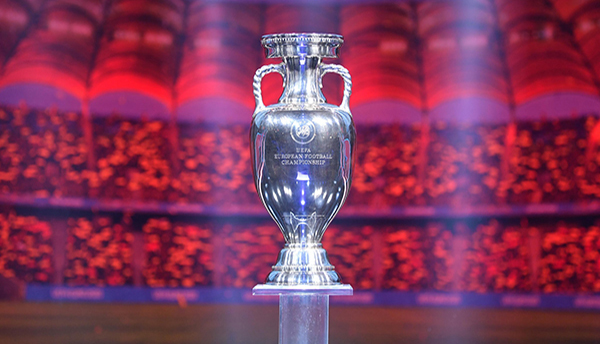
The History of the EURO
The first European Championship was held in France in 1960, but the concept of holding a European-level national football tournament dates back much further. The French Football Federation, led by Henri Delaunay, unveiled the concept in 1927, but it would take more than thirty years to become a reality. Delaunay, who would go on to become UEFA's first General Secretary, was a big fan of the European tournament, which is why the trophy bears his name.
The European Championship, or European Nations Cup, as it was originally called, was not very important in its first two editions in 1960 and 1964. It wasn't until 1968 that the tournament gained traction in Europe, thanks in part to the implementation of a group-based qualifying system, as was already in place for the World Cup.
The modern era of European Championship history began in 1980, when Artemio Franchi, then-president of UEFA, proposed increasing the number of teams in the finals to eight. The final stage was expanded to sixteen teams divided into four groups in the 1996 edition. In addition, the famous "golden goal" rule, which states that the first team to score in extra time wins the match, was introduced in that edition's final.
The 2000 European Championship was the first to be co-organized by two countries: Belgium and the Netherlands. This formula was used again in 2008, with Austria and Switzerland as hosts, and again in 2012, with Poland and Ukraine as hosts. The big difference in the 2021 edition, which will keep the name Euro 2020, will be that the venue will be shared between 11 cities across Europe, with the 24 participating teams competing for the trophy once again.
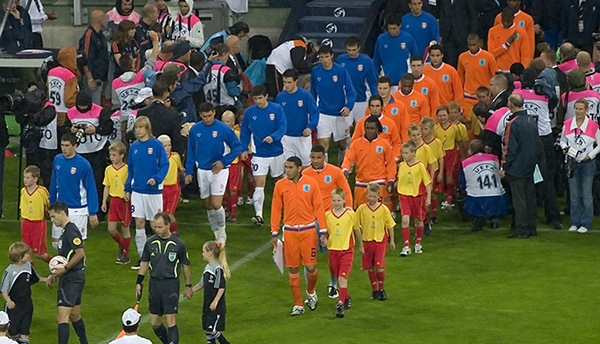
The Winners of the European Championship
With three titles each, Spain and Germany are the two national teams that have won the European Championship the most times in its history. After winning the tournament for the first time in 1964, Spain is the only team to have won it twice in a row, in 2008 and 2012. Despite the fact that the German team has played more games, scored more goals, and won more games.
| National Team | Titles | Years |
|---|---|---|
| 3 | 1972, 1980, 1996 | |
| 3 | 1964, 2008, 2012 | |
| 2 | 1984, 2000 | |
| 1 | 1960 | |
| 1 | 1968 | |
| 1 | 1976 | |
| 1 | 2016 | |
| 1 | 1988 | |
| 1 | 1992 | |
| 1 | 2004 |
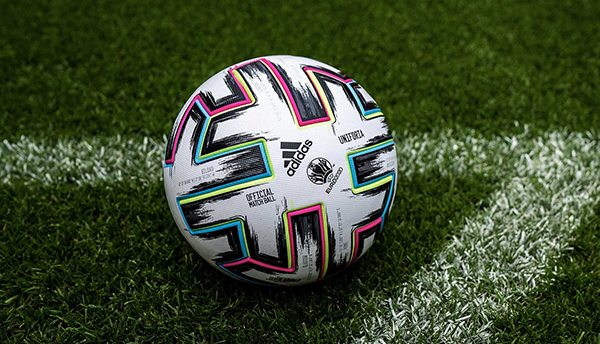
All-Time Top Scorers of the EURO Championship
This competition has featured some of Europe's best players, including Michel Platini, Cristiano Ronaldo, Antoine Griezmann, Ruud Van Nistelrooy, Patrick Kluivert, Wayne Rooney, Thierry Henry, Zlatan Ibrahimovic, and Nuno Gomes, who were the top scorers in the Euro finals. The goals scored by each of them, as well as the first English scorer in the ranking, Alan Shearer, are shown in the table below.
| Puesto | Jugador | Goles |
|---|---|---|
| 1 | 9 | |
| = | 9 | |
| 3 | 7 | |
| 4 | 6 | |
| = | 6 | |
| = | 6 | |
| = | 6 | |
| = | 6 | |
| = | 6 | |
| = | 6 | |
| 11 | 5 | |
| = | 5 | |
| 13 | 5 | |
| = | 5 | |
| = | 5 | |
| = | 5 | |
| = | 5 |
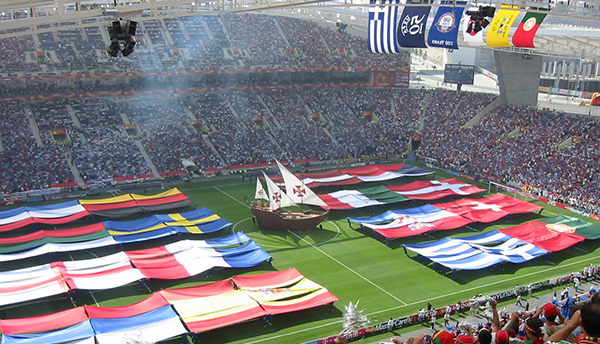
Anecdotes of the EUROs
- In 1960, Franco refused to allow the Spanish national team to compete in the quarter-finals against the Soviet Union.
- After the match was tied, Italy won the semi-finals by a draw in 1968.
- Czechoslovakia won the European Championship in 1976 as a result of Panenka's famous penalty kick.
- In 1984, France became the only team to win every match in a tournament.
- Denmark won the title in 1992 despite winning only two of five matches.
- In 1996, Oliver Bierhoff scored the first "golden goal" to win the European Championship.
- In 2008, the European Championship trophy was redesigned and made larger and heavier.
- The final between Portugal and France in 2016 drew 600 million viewers.
- The host country of the European Championship has only won the tournament three times.
- Spain's Fernando Torres is the only player to have scored in both European Championship finals.
 Retrofootball
Retrofootball  Belgium
Belgium  France
France  Germany
Germany  Italy
Italy  Portugal
Portugal  Spain
Spain  Switzerland
Switzerland  United Kingdom
United Kingdom  other countries
other countries  Retrorugby
Retrorugby 
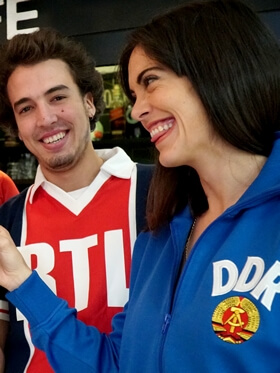
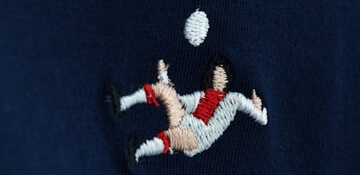




Post Comments